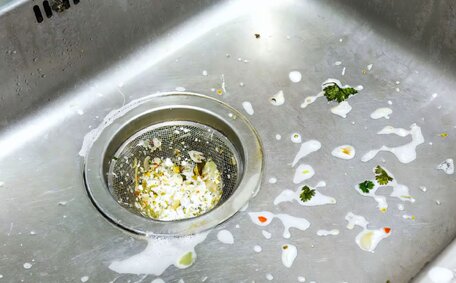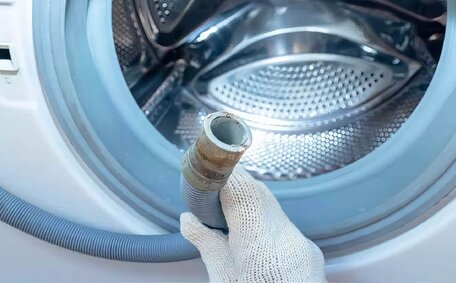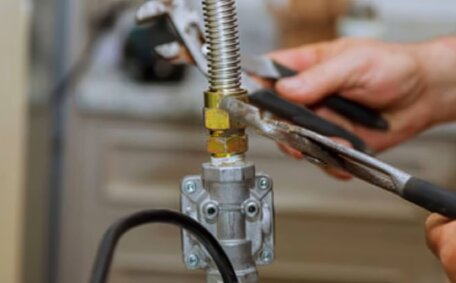How Do Factors Like Freezing Temperatures and Corrosion Affect Different Pipe Materials?
Freezing temperatures and corrosion significantly affect various plumbing materials. PEX pipe, known for its flexibility, can expand significantly without bursting, but it may become brittle with prolonged UV light exposure.
Copper pipes, while durable, may burst when the water inside freezes and expands.
Steel pipes resist corrosion effectively, but their rigidity makes them susceptible to cracking and leaking during freezes.
Plastic pipes such as PVC and CPVC are better at withstanding freezing but may become brittle and fracture over time, resulting in leaks.
In areas with frequent temperature fluctuations like Blacktown, combining various pipe materials can help reduce the risk of pipe freezing. Use corrosion-resistant supply lines leading to more durable plumbing pipe materials like PEX or copper within the home. Learn to shut off water supply lines and drain pipes before extreme cold sets in. Be proactive in monitoring and maintaining your plumbing to handle issues before pipe failures occur in the long run.
Insulating the crucial water pipes in your home, particularly in unheated spaces and external walls, helps manage temperature extremes.
Which Pipes Are Most Prone to Freezing and Bursting?
The type piping most vulnerable to freezing and bursting are metallic pipes like copper, steel, and galvanised iron. It’s also the inflexible nature of this type of piping that means it cannot expand when water freezes inside, leading to cracks and fractures.
Copper is especially prone to freezing issues since it conducts heat well, allowing interior temperatures to quickly match exterior cold. Pipes in unheated areas like crawl spaces, attics, and exterior walls are most at risk. Even small cracks can make a significant impact, leading to major leaks once the ice thaws.
PEX piping, made from flexible plastic, is notably more resistant to freezing. Insulating PEX pipes provides extra protection against burst risks during cold snaps.
PEX supply lines in interior plumbing systems offer durability and resistance to freezing.
When it comes to homeowners in regions with extreme temperature shifts, preventing frozen pipes can also be the best approach.
Insulate metallic pipework in unheated areas strategically. Install heat trace wires and drain exterior taps and irrigation systems before deep freezes. Know how to thaw pipes safely if ice blockages occur.
Pros and Cons of Common Piping Options for Cold Climates
Pipe selection for cold climates should prioritize freeze resistance, durability, and affordability. Considering the strengths and weaknesses of materials such as copper, PEX, and steel is crucial, as each offers unique benefits and drawbacks.
Copper Pipes
Pros:
- Very durable if properly installed
- Resists corrosion and mineral buildup
- Long lifespan of 50+ years
Cons:
- Expensive upfront cost
- Inflexible nature means pipes can burst when water freezes inside
- Not an easy install for DIY homeowners
PEX Piping
Pros:
- Flexible plastic pipes can resist freezing cracks and bursts
- More affordable than copper
- Easy for DIYers to install
- Its corrosion resistance is an additional advantage
Cons:
- Can become brittle and develop pinhole leaks over time
- While PEX is appropriate for high-temperature scenarios, it is less suitable for the most extreme heat conditions, such as hot water lines
Steel Pipes
Pros:
- Very strong and durable
- Resists mineral buildup
Cons:
- Like copper, can burst due its inflexibility when water freezes
- Corrosion issues over time, leading to leaks
- Difficult for homeowners to install and repair
Select piping that offers a balance between cost, longevity, ease of installation, and freeze resistance, and ensure all pipes are insulated to prevent bursting during cold snaps.
Choosing the Right Pipes for Your Home to Withstand Emergencies
Selecting the right pipes for your Sydney home is crucial for emergency plumbing preparedness to withstand extreme weather events like sudden freezing temperatures or storms. Choose materials with durability and resilience appropriate for high temperature fluctuations, tailored to your region’s climate.
Copper Piping
Copper is long-lasting when installed correctly but can fracture if water inside freezes. For Blacktown’s fluctuating weather, use flexible supply lines along with copper for better emergency resilience.
The PEX plastic pipe, capable of expanding thrice its diametre, offers superior resistance to freeze-induced cracking. It’s also praised for its resistant corrosion qualities while retaining its elasticity. Just take care around heat sources, as excessively high temperature environments accelerate material wear.
Insulate Vulnerable Areas
Insulating exposed exterior pipes and those in cold spaces, like attics, is essential for Sydney homes. Use both insulation and heat tracing products to keep temperatures above freezing, avoiding exterior water lines where feasible.
For renovations or new builds, consult a professional to assess climate risks and recommend suitable piping. Knowing the right materials and insulation strategies is key to keeping plumbing prepared for emergencies.
Protecting Your Existing Pipes from Freezing With Preventive Measures
There are several effective ways homeowners can protect existing pipes against freezing temperatures and prevent destructive pipe bursts:
Insulating exposed pipes in unheated crawl spaces, attics, basements, and garages is crucial before winter hits. Use specific water pipes insulation wraps or waterproof insulation covers secured tightly around metallic pipes. Maintain these areas at temperatures above freezing all season, as often recommended in colder regions like the United States.
Heat Trace Pipes
Self-regulating heating cables, such as heat trace, deliver targeted warmth to prevent PEX and similar pipes from freezing. They maintain safe temperatures down to -20°C and switch on automatically whenever pipes get too cold. Make sure to install per manufacturer instructions before cold weather begins, as commonly used for preventative measures.
Seal Air Leaks
Seal any external air gaps like vent spaces and wiring holes with caulk and weatherstripping to block cold air and prevent pipes from freezing rapidly.
Let Faucets Drip
Let an interior faucet drip during freezing temperatures to maintain flow and prevent pipes from freezing. Select the faucet furthest from the main shut-off for extensive coverage of the drinking water system.
Pair these proactive measures with knowing how thaw frozen pipes safely, and your plumbing will stay protected from winter emergencies.
How To Thaw Frozen Pipes and Prevent Long-Term Damage
When pipes freeze, what do you need to do? It is crucial to thaw them properly to avoid permanent damage. Here are safe methods for frozen pipe thawing:
Detecting Frozen Pipes
Check all unheated areas like attics, basements and crawl spaces for exposed pipes. See if the pipes feel unusually cold to the touch.
Turn on nearby faucets to check for water flow. Bursts or leaks upon thawing indicate freezing.
Safely Thawing Pipes
Initially, turn off the water supply to the afflicted pipes, which hinders refreezing and the buildup of excess pressure. This prevents refreezing and additional pressure buildup.
Apply gentle heat using a hairdryer, space heater or heating pads to slowly thaw ice blockages.
NEVER use direct flames or very hot water to thaw pipes quickly - this can fracture them. Once fully thawed with water flowing again, inspect carefully for damage before restoring full water supply.
Thaw partially first, starting closest to the faucet end. Check often for bursts and leaks.
Seeking Professional Help
If you’re unable to locate or fix a frozen area, or if pipes have burst, contact a plumber immediately. Expert help is crucial for addressing freeze damage and preventing long-term problems like mould or structural issues.
Adapting Plumbing Systems to More Extreme Winters
Plumbing systems might need to adapt to more extreme winters and the accompanying stresses like freezing temperatures and pipe bursts attributed to climate change.
Relocate Vulnerable Pipes
Relocate outdoor supply lines and pipes to indoor or heated areas. Pipes in attics, basements, garages, and crawl spaces should be wrapped in insulation and equipped with heat trace cables for extra protection.
In renovations or new constructions, choose thermoplastic piping such as PEX or CPVC over metal. This type of pipe can expand with frozen water, reducing the likelihood of cracking. Nevertheless, insulation remains important.
Install Freeze Alarms
Install freeze alarms to alert you to temperature drops, allowing for proactive measures to prevent ice damage. These alarms can sometimes activate heating tapes to quickly warm areas at risk.
Homeowners should know how to drain exterior taps, irrigation systems, and supply lines before the onset of extreme cold. Install stop valves for easy system isolation. Remain alert to freeze risks to take timely preventive measures.
With proper materials, insulation tactics, and freeze prevention knowledge, plumbing systems can endure even the harshest winter conditions going forward.






